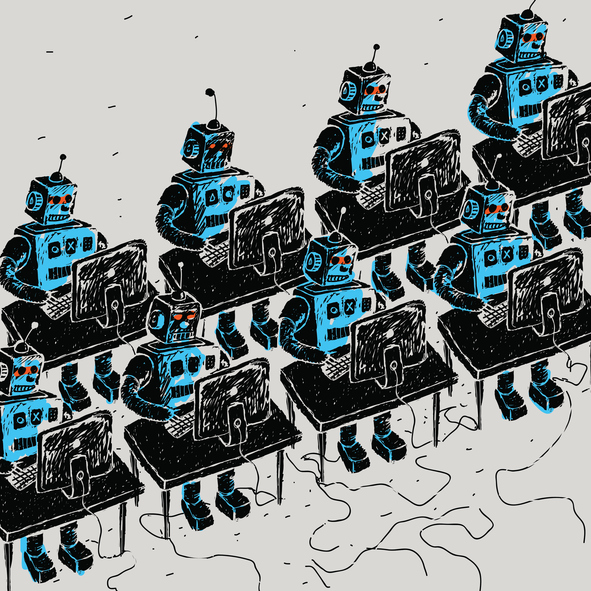Elevating the HR function through digitalisation

| About the Author |
| Jarrod Patterson is Henkel’s HR Director for South Asia, and HR Business Partner for Purchasing, Operations and Supply Chain in Asia-Pacific |
Digital transformation is one of the biggest changes impacting businesses and the way people work. It is imperative that we in HR implement new strategies and practices as the interaction with our workforce rapidly evolve.
At the same time, we want to enable our employees to effectively navigate the latest technological and digital trends and tap the right opportunities.
We can consider the digitalisation of HR along two dimensions. One is the digitisation of the HR function, which involves implementing digital HR processes and services as well as ensuring that the HR team embraces a digital mindset.
For this, Henkel has a dedicated team that explores new solutions for various aspects of HR processes and improve the delivery of services across the organisation.
The second area is to eTransform the organisation, which includes equipping employees with the relevant digital skills while fostering a lifelong learning mindset.
In line with this, Henkel has launched a digital upskilling initiative for our employees around the world. The initiative involves assessing the digital knowledge of employees and offering them with tailor-made digital training and upskilling recommendations and programs.
The goal is to systematically advance their digital capabilities and enable them to stay ahead of the game.
Speed, transparency and efficiency
Digitalisation and technological disruption are rapidly transforming the HR landscape and creating new opportunities. An example is how we attract and search for talent in the marketplace.
For recruiters, online platforms provide instant networks to thousands of active and passive candidates, who were previously much harder to source.
On the other hand, employees are using social media and online portals to rate their employers and share their positive and negative experiences.
Like how a traveller or restaurant customer post their reviews online, this trend is gathering pace. While prospective candidates benefit from a new level of transparency, organisations that value and recognise their employees are rewarded with positive employer branding that make them more attractive to potential employees.
In addition, the introduction of chatbot services has paved a new way for businesses to communicate with new employees, reduce workload and improve user experience via quick and consistent responses.
There has also been a rapid uptake in using social media for peer-to-peer recommendations and job referrals by companies and candidates. An example is WeChat, which has proven to be successful in referring and promoting job ads to prospective candidates via smartphones.
Enabling digital upskilling and lifelong learning
| Itis imperative that we in HR implement new strategies and practices as the interaction with our workforce rapidly evolve. |
To seize the opportunities that digitalisation brings, it is essential to equip employees with the right skills. Henkel offers two learning approaches: digital training and digital upskilling.
Digital training focuses on education on digital issues and developing digital mindset and behaviours. Digital upskilling provides learning paths for specific roles and responsibilities.
Besides conventional classroom training, new learning formats are utilised within Henkel to enable employees to learn continuously in their career journey.
On Henkel’s digital learning environment, there are more than 3,500 courses in up to 16 languages in different formats. These include interactive online learning, webinars by leaders and experts, and case studies.
We are also piloting game-based learning, where teams collaborate virtually to solve fictitious business problems, and, meanwhile, expand their professional network with colleagues from different countries.
Employees can also participate in massive open online courses anytime, anywhere, supported by live chats with experts. They also have access to more than 13,000 video courses conducted by inspirational thought leaders.
Besides the vast training resources available, learning can be personalised. For example, on-demand programs give learners the flexibility to not only access content anywhere and anytime, but also engage in bite-size learning while juggling their busy work schedule.
Additionally, we can utilise smart systems to recommend the right online training, either by direct nomination or suggestion based on artificial intelligence (AI).
Internal HR systems no longer just record employee ‘master data’, but also utilise AI to match candidates to roles and map internal succession pipelines.
While these HR practices are not new, the use of AI enables greater data analysis that was previously an uncharted territory or an extremely labour-intensive process highly prone to bias and error.
These powerful job matching systems draw upon the data on the job positions, employees’ qualifications and their career preferences to propose guided career paths for our employees to pursue.
Thus, the HR function is a strategic partner in the digital transformation of any organisation. Among many opportunities, the ability to leverage the right digital solutions can optimise HR practices and empower employees in their lifelong learning journey.
These capabilities contribute towards enabling our organisation and workforce to stay relevant, agile and competitive in a changing marketplace.



